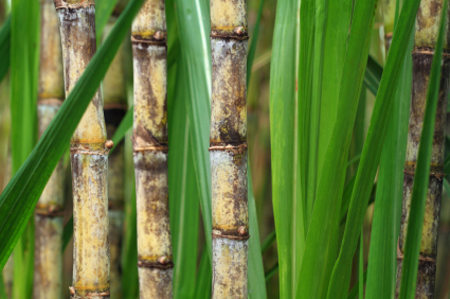USDA says it will protect sugar in trade negotiations
Category: Sugar
 (AgWeek) – The uncertainty surrounding sugar imports from Mexico has made it harder to manage the U.S. sugar program, but the Obama administration is committed to reducing risks for sugar growers and will protect U.S. sugar in trade negotiations, Agriculture Undersecretary for Farm and Foreign Agricultural Services Michael Scuse said Aug. 4.
(AgWeek) – The uncertainty surrounding sugar imports from Mexico has made it harder to manage the U.S. sugar program, but the Obama administration is committed to reducing risks for sugar growers and will protect U.S. sugar in trade negotiations, Agriculture Undersecretary for Farm and Foreign Agricultural Services Michael Scuse said Aug. 4.
In a speech to the American Sugar Alliance, Scuse said one of the U.S. Department of Agriculture’s most basic functions is to help farmers manage risk, and the administration considers the sugar program “rooted” in the “primary foundation” of USDA, going back to its founding by President Abraham Lincoln.
USDA’s foundation is to “provide tools to manage risk, soften the swings of the unpredictable, monitor and prepare for the unexpected and provide safety nets, should they occur, whether it’s growing crops, protecting forests, tackling disease or affording food,” Scuse said, speaking at the ASA’s annual Sweetener Symposium. ASA represents beet and cane sugar growers.
“The federal sugar program is rooted in these exact same principles,” he said. “USDA is required to operate the program within the parameters designed by Congress so that supplies of raw and refined sugar are maintained in the domestic market — and so that sugar loan forfeitures by processors are avoided.”
Congress also requires this to be done “at no cost if possible,” Scuse noted, but he added, “As we learned last year, there can be costs.”
Predicting future supply and demand for sugar is always a daunting task, he said. Anti-dumping investigation“
The greatest area of uncertainty this year is not the weather, it is the anti-dumping and countervailing duty investigation of sugar imports from Mexico,” Scuse said.
The sugar-growing industry has charged that the Mexican government is subsidizing sugar exports, and the Commerce Department and the International Trade Commission are investigating those charges.
Under the North American Free Trade Agreement, Mexico has full access to the U.S. market, but NAFTA does not give it the right to subsidize those markets.
About 20 percent of Mexican sugar mills are government-owned, and Mexico has dramatically increased its exports to the U.S. in recent years, reaching a total of 2 million tons and 17 to 18 percent of sugar consumed in the U.S.
Mexico and the U.S. Sweetener Users Association have said the Mexican sugar industry has responded to higher prices in the U.S., but the U.S. sugar growers say Mexico has subsidized its industry.
Scuse noted that USDA’s official role in the investigation is limited to answering technical questions asked by Commerce and the ITC. He also noted the countervailing duty case has been extended to Aug. 25, while the preliminary determination on the dumping case is due no later than Sept. 4, but could be extended by up to an additional 75 days.
“We hope that the two sides can reach a mutually beneficial agreement that protects our domestic sugar producers and provides consumers with an abundant supply of affordable sugar,” Scuse said.
But he noted the uncertainty of whether Mexico will continue to export sugar to the U.S. under current rules “makes managing the sugar supply more difficult.”
Frank Jenkins, a sugar analyst based in Wilton, Conn., said Aug. 4 that the sugar growers are likely to win the antidumping and countervailing case. “In the past two years, USDA has lost its ability to manage the U.S. sugar program,” Jenkins said.
In a discussion of the Trans-Pacific Partnership trade negotiations, Scuse said, “The United States has both offensive and defensive interests with regard to sugar. We are working toward an agreement that will not undermine the current U.S. sugar program and support U.S. agriculture.
”When talking about the Trans-Atlantic Trade and Investment Partnership negotiations with the European Union, he used slightly different language.
“I understand your sensitivities on further opening the U.S. market to sugar imports and we are taking your concerns into consideration,” Scuse said.
But in an interview afterward, Scuse said his choice of different words does not mean the approach is different in the TPP and the TTIP. The administration’s approach on sugar is the same in both negotiations, he said.
Asked in a question-and-answer session how American farmers can compete when they must comply with U.S. environmental and labor laws, Scuse said, “There are many countries where environmental laws and regulations are more difficult for farmers and producers than what you in this room have to contend with.”
Scuse suggested that farmers take a look at some of the laws in South America and the EU.“I think we can compete,” he concluded, adding he thinks the U.S. has “the very best producers to be found anywhere in the world.”




